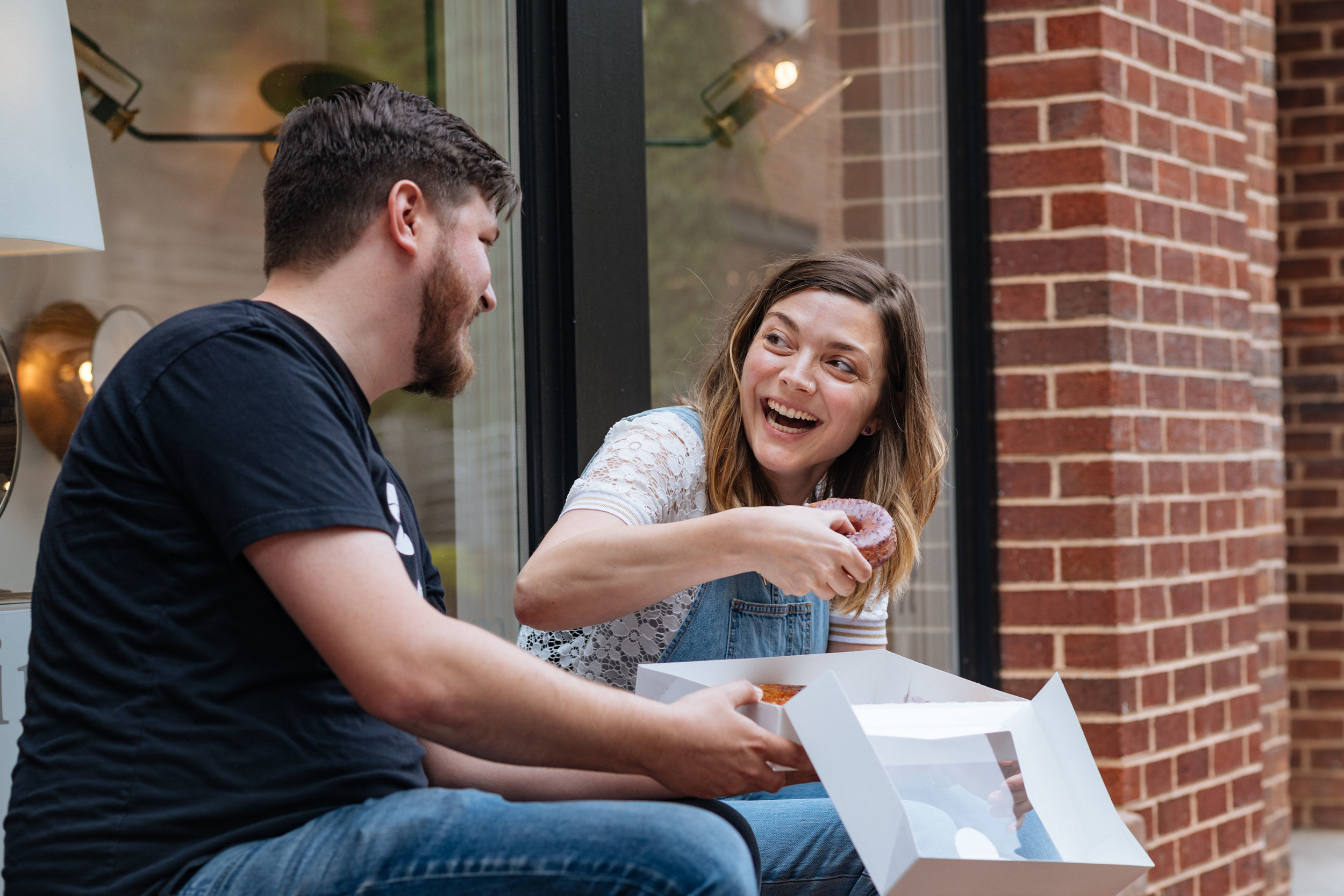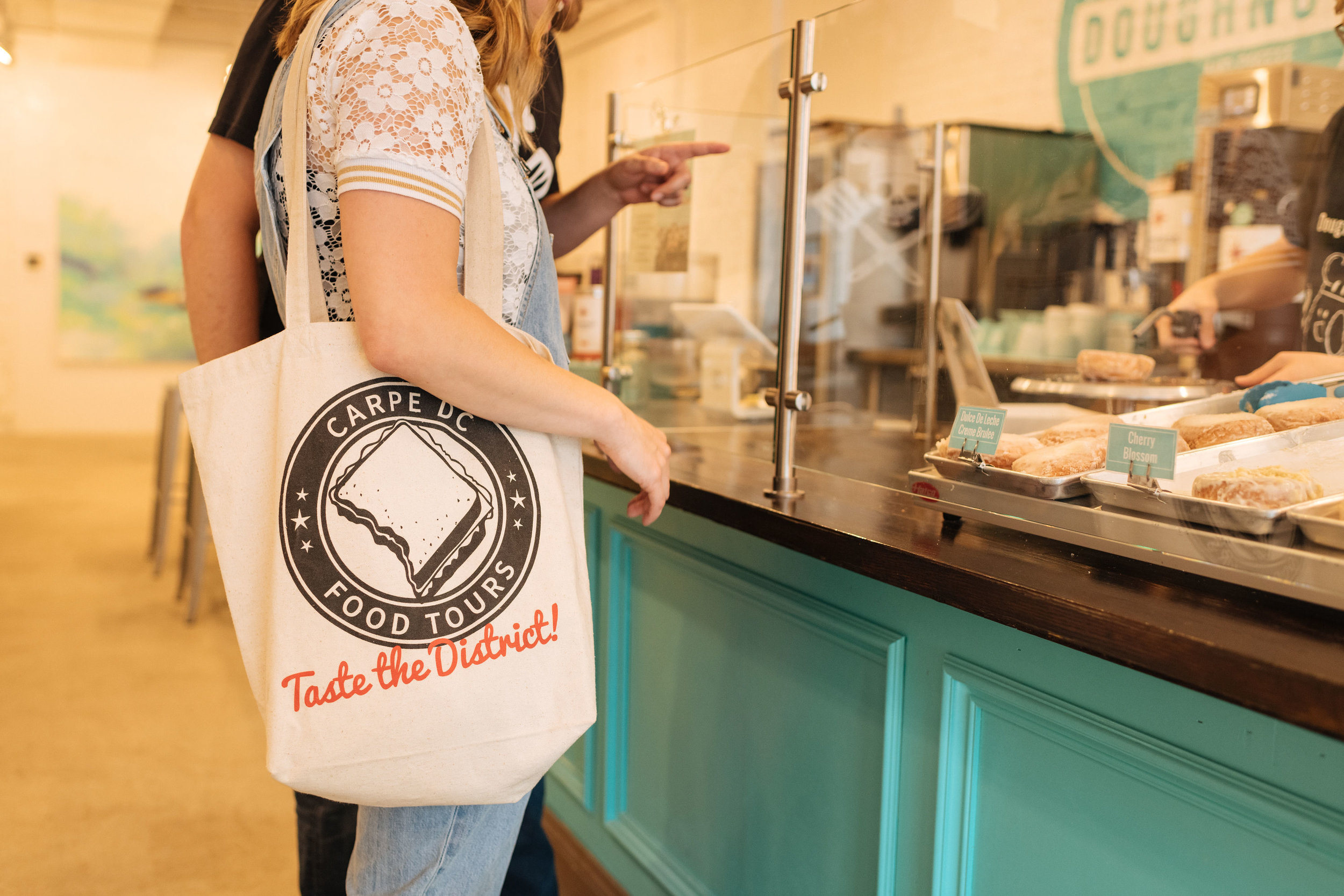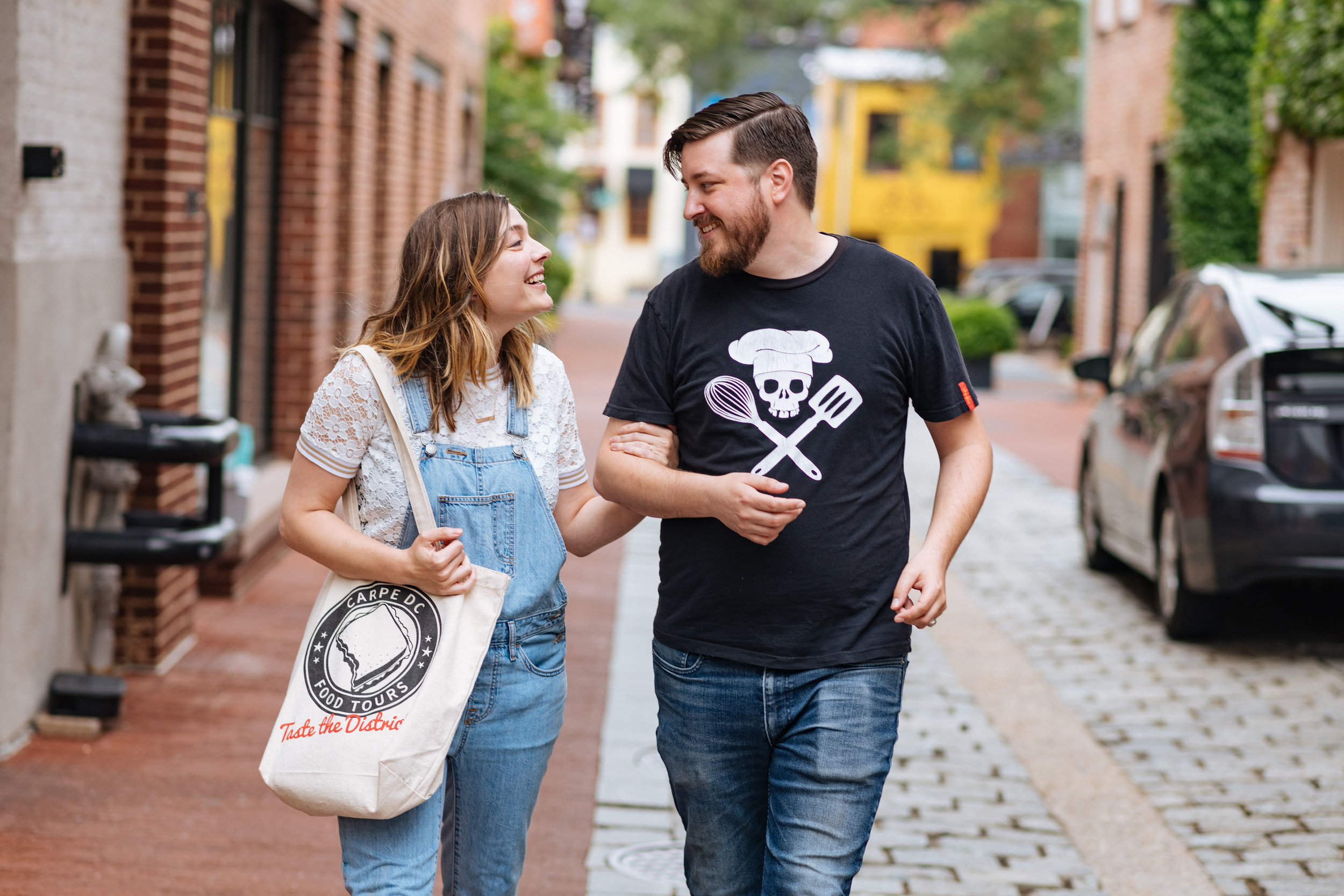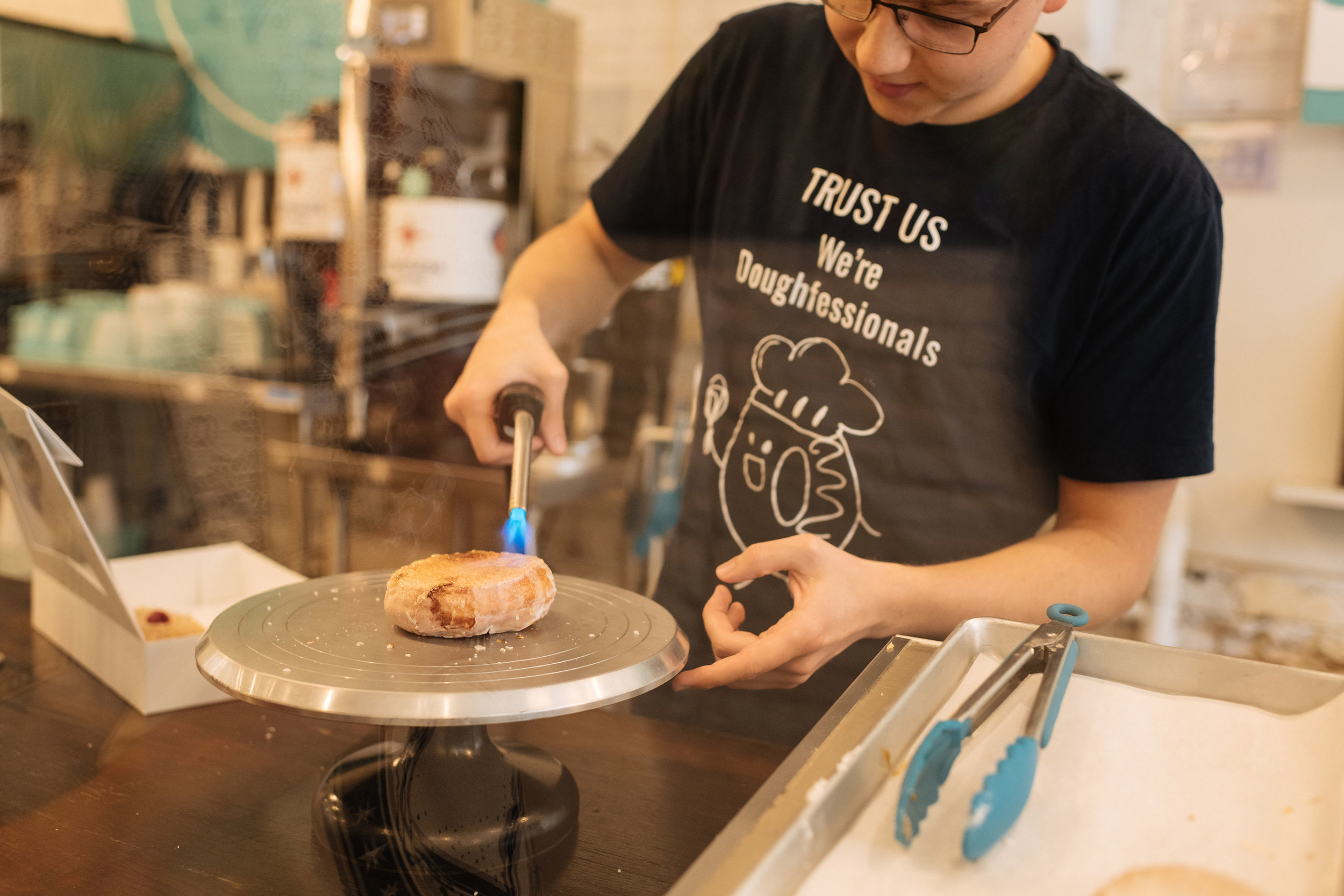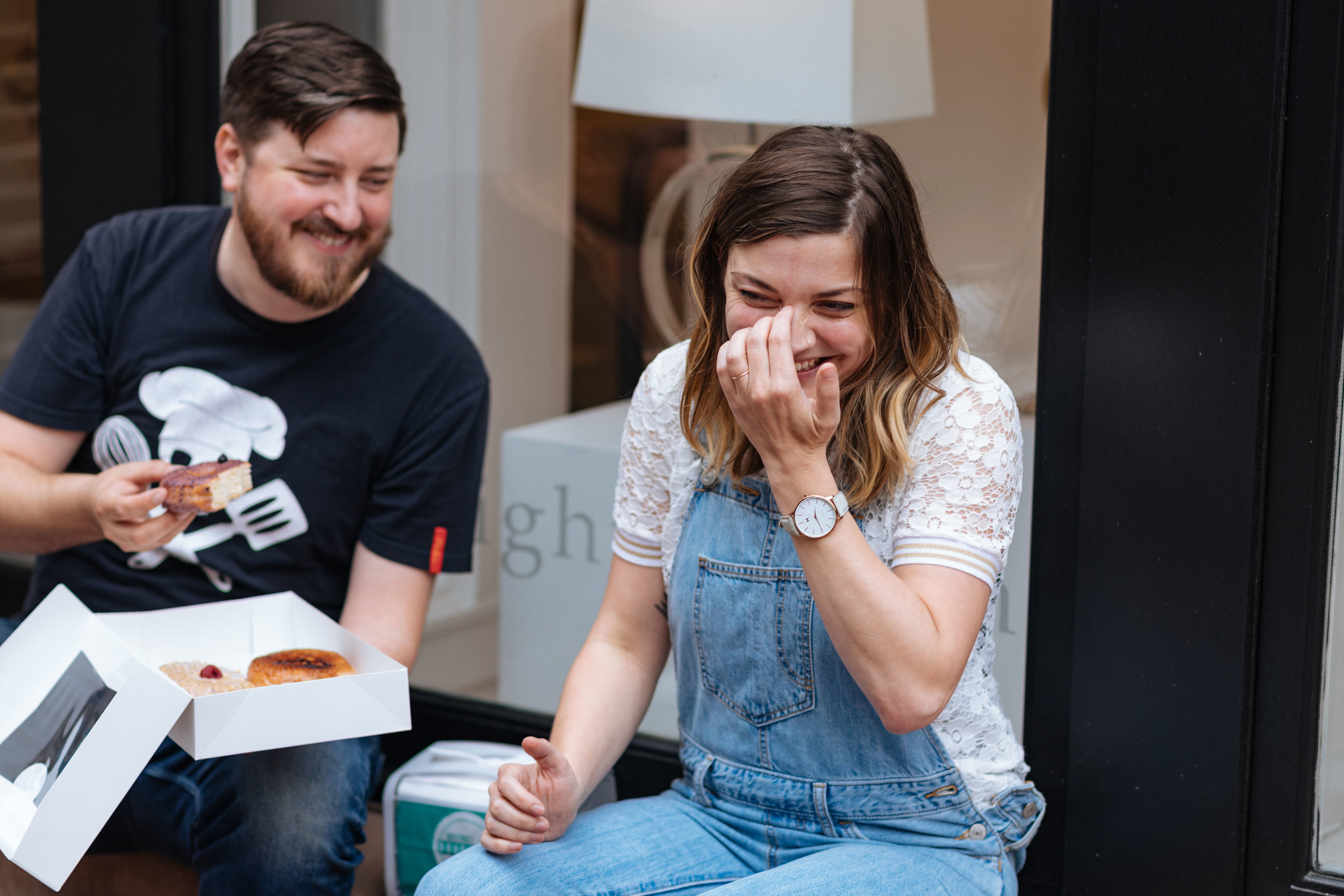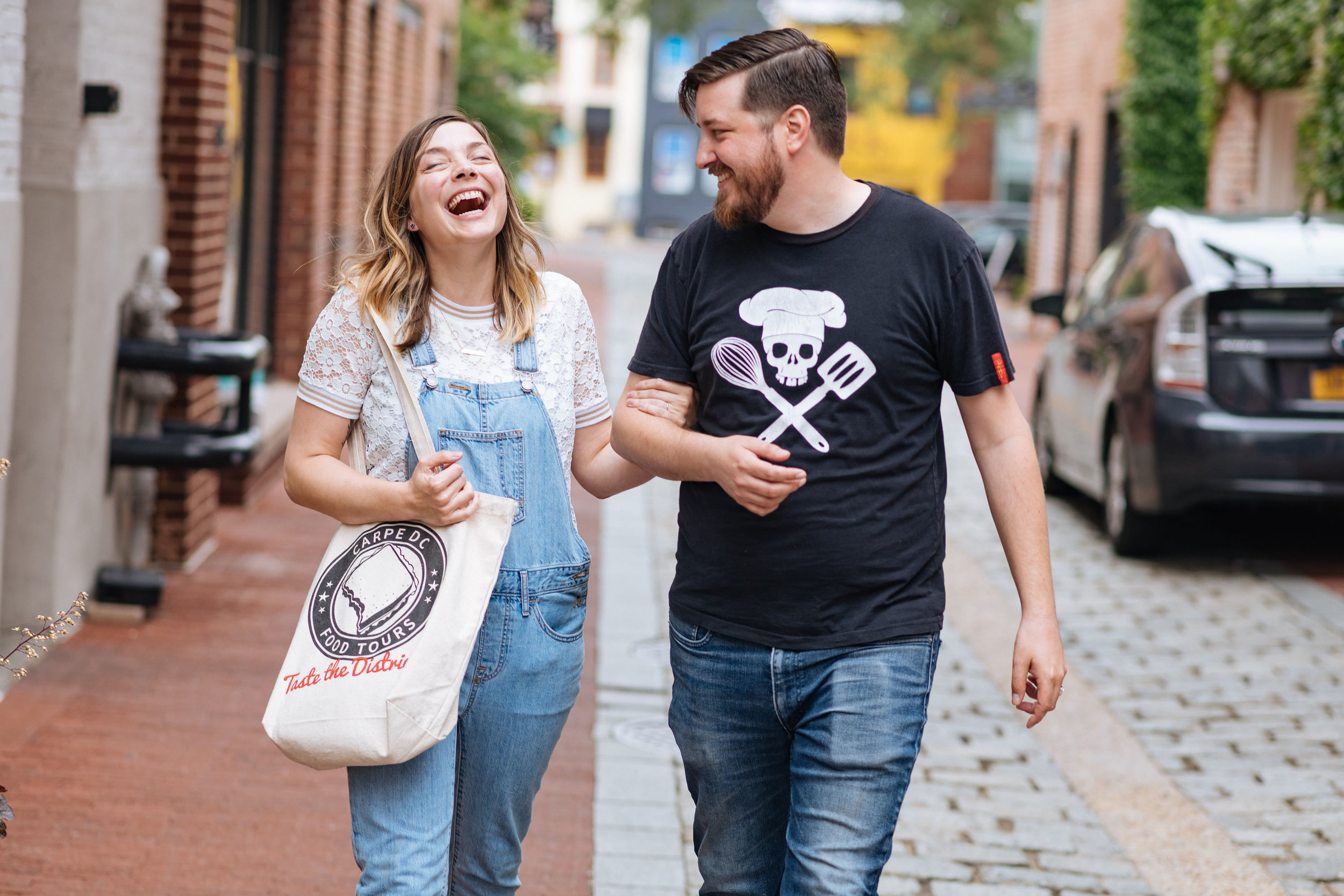‘We Try To Tell Stories, Through Food, That Are Overlooked’
Mary Collins can tell you everything about that night at a backyard barbeque in Chile—from the smell of the food, to the music playing in the background.
Stefan Woehlke still remembers the best snapper of his life—gifted by a neighboring fisherman during an eight-month stint in St. Croix.
A college anthropology class brought the couple together; food introduced them to the rest of the world.
‘We vividly remember meals we’ve had on trips,’ Mary says. ‘Food pulls an experience together and engages all of your senses.’
After a decade spent traveling around the world—and abandoning their initial plan to open a hostel—Mary and Stefan founded Carpe DC Food Tours in 2014. The mission-driven company exposes visitors to Georgetown’s independent food scene and lesser-known history, while supporting the small businesses that are the fabric of the neighborhood.
‘Throughout our travels, we felt like the things that were bubbling up to the surface and resonating were experiences with locals, getting off the beaten track, and anything having to do with food,’ Mary says. ‘We try to make our tours feel that way; not like you’re following a white umbrella or being herded around.’
The Georgetown tour begins at District Doughnut, where each bite isn’t just about the doughnut, but the larger historical context behind it.
‘Their chef approaches food in the same way people would have during the Colonial period,’ says Stefan, who is finishing his PhD in anthropology. ‘Everything is very seasonal, and made with pantry items and dry goods you can store. Then we go to Falafel Inc. and talk about the mixing of cultures and how the Atlantic trade impacted that. A lot of the ingredients were things domesticated in the Americas. You eat that sandwich and think it’s a really traditional falafel sandwich, but it couldn’t have existed before the Atlantic trade. We try to complicate things to get people to think a bit more.’
The tour rounds out with zucchini pasta at 1310 Kitchen & Bar, a pork sandwich at Simply Banh Mi, and pastries at Patisserie Poupon. Sprinkle in a few contextual stories like that of Mary Billings, a British woman who ran an interracial school in 1807 while slaves were still being sold down the block, and visitors walk away with a deeper understanding of a complex and diverse neighborhood that’s often painted with too broad a brush.
‘So much of DC’s history is completely overlooked by people who come to visit,’ Stefan says. ‘The whole focus is the national story and DC is an afterthought. Can you name another city you would go to and think, I’m going to learn nothing about this city? It’s a really unique tourism market and these tours are a way to guarantee people visit an actual neighborhood and experience the city. The times we most connect with people are over a meal, and people let their guards down and learn something about Georgetown—but also develop a curiosity for their own community.’
‘One of my favorite things to hear after a tour is, ‘This makes me wonder about my hometown,’ Mary adds. ‘Inspiring that curiosity is one of our goals.’
While many tour operators try to negotiate rock-bottom prices, Stefan and Mary pay full price for the food, tip at least 20 percent, and only support locally owned restaurants. For every tour ticket sold, three meals are also donated to Bread for the City. As a social enterprise, Carpe DC is intentional about its impact on the community.
‘Mary and I share an enthusiasm for the contributions of cultures around the world,’ Stefan says. As we traveled, we were seeing all of these beautiful, amazing things and having experiences we’ll remember the rest of our lives, but also seeing people around us who were struggling.
‘We realized that for the most part, we were staying at hostels owned by ex-pats who weren’t really invested in being part of the communities they were living in. We felt like the tourism industry could be done more ethically and responsibly, and we were committed to coming up with a business that would actually support the communities in which we were working. We know that while individual travelers might not become repeat customers, our tour is the repeat customer and does increase business to these local restaurants so it’s important to ask what they’re getting out of it long term.’
‘We wanted to create something that would make it easy to give back directly to the community and support them without having to build a whole house in Habitat for Humanity,’ Mary adds. ‘People could still be on vacation but supporting the community.’
Carpe DC Food Tours has expanded to three neighborhoods with eight guides since its inception, including five weekly tours through Georgetown, plus seasonal Georgetown GLOW editions. Mary finally quit her full-time job last Fall to focus solely on the business—grateful for the five years spent growing it without the pressure to earn a salary.
Now, Stefan is grateful he’ll always have a job.
‘Mary created a business to guarantee my employment,’ he says. ‘It’s funny, but it’s very true.’
When they aren’t crafting tours, Stefan and Mary are busy raising two children under three. If early tastes are any indication, they’re already creating their own connections rooted in food.
‘When our daughter was six-months-old, we took her to Japan and her first real food was miso ramen,’ Mary says. ‘Her favorite is Ethiopian, even though it’s really hard for her to pronounce. She loves food.’
